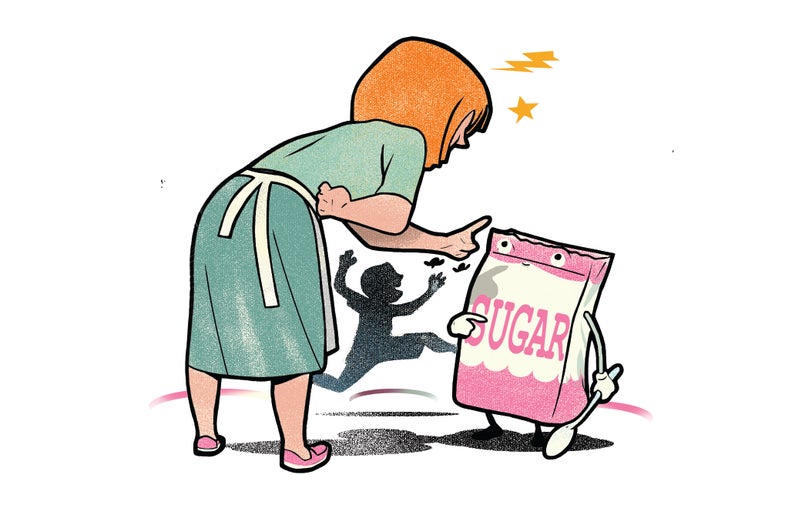Does Sugar Make Kids Hyper?
Short answer: Only if you believe it does

The image of a kid on a sugar high bouncing off the walls gained credence in the 1970s and ’80s, when several studies linked sugar intake to behavioral problems such as hyperactivity.
But in 1995, Vanderbilt University pediatrician Mark Wolraich reviewed 23 studies involving more than 400 children and found no evidence for the belief that sugar impacts a kid’s behavior or cognition. “We came as close to proving the null hypothesis as you can,” says Wolraich, who is now Chief of Developmental and Behavioral Pediatrics at Oklahoma University.
In the early 1990s, psychologists Richard Milich and Daniel Hoover took a different approach to answering the question: They studied 31 boys ages 5 to 7 whose parents identified them as “sugar sensitive.” The researchers gave the boys aspartame-sweetened Kool-Aid and then videotaped them interacting with their moms. Beforehand, the researchers told half the moms their kids had consumed sugar and told the other half the truth. Parents who thought their kids were on a sugar high rated them as being more hyperactive and criticized them more severely. Milich and Hoover concluded that the link between sugar and behavior might be based on parents’ expectations, not on the sweetener itself.
There might also be other factors at play when sugared-up kids go nuts. Candy and cake, for example, are staples on Halloween and at birthday parties—events rife with kid drama. Or there might be other substances in the mix. Chocolate, for instance, is packed with stimulants, such as caffeine and theobromine.
Still, for many parents, sugar remains the go-to scapegoat, even if proof is lacking. “We’re always looking to explain our behavior,” Milich says. “We don’t like to be in a vacuum where something happens and we don’t know why.”
Have a question? Tweet your science questions and quandaries to @PopSci with the hashtag #AskAnything, or email us at AskAnything@popsci.com.
This article was originally published in the July 2015 issue of Popular Science